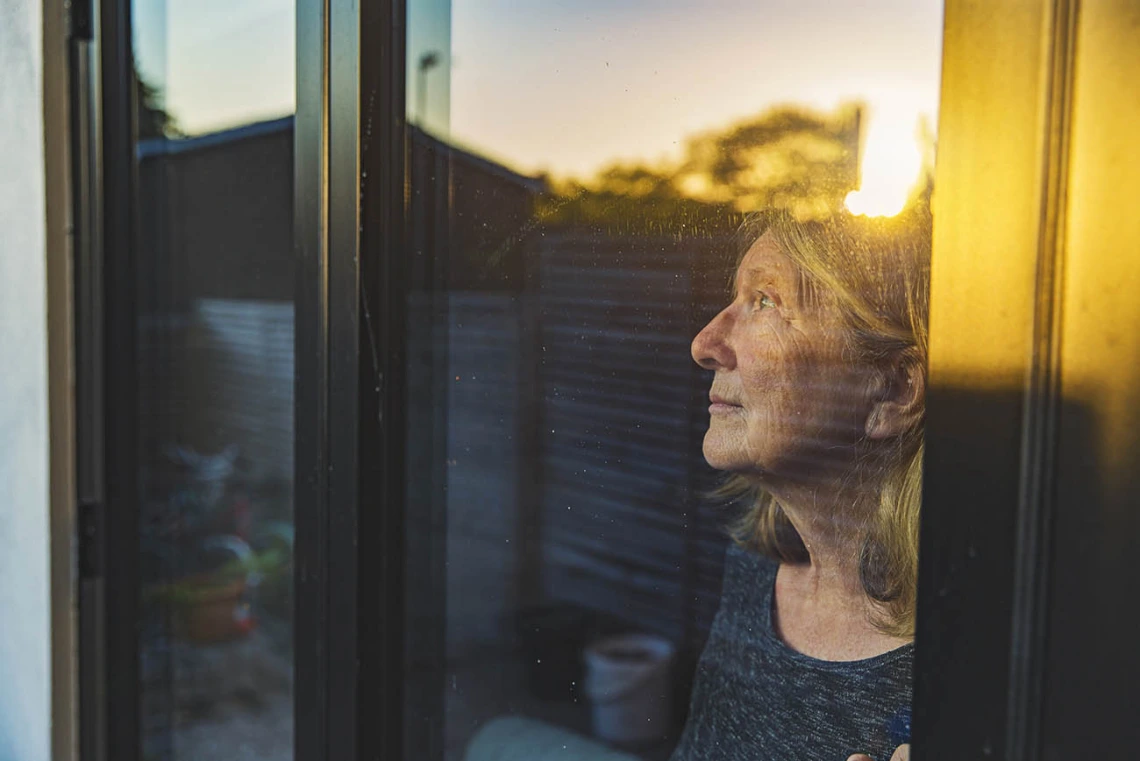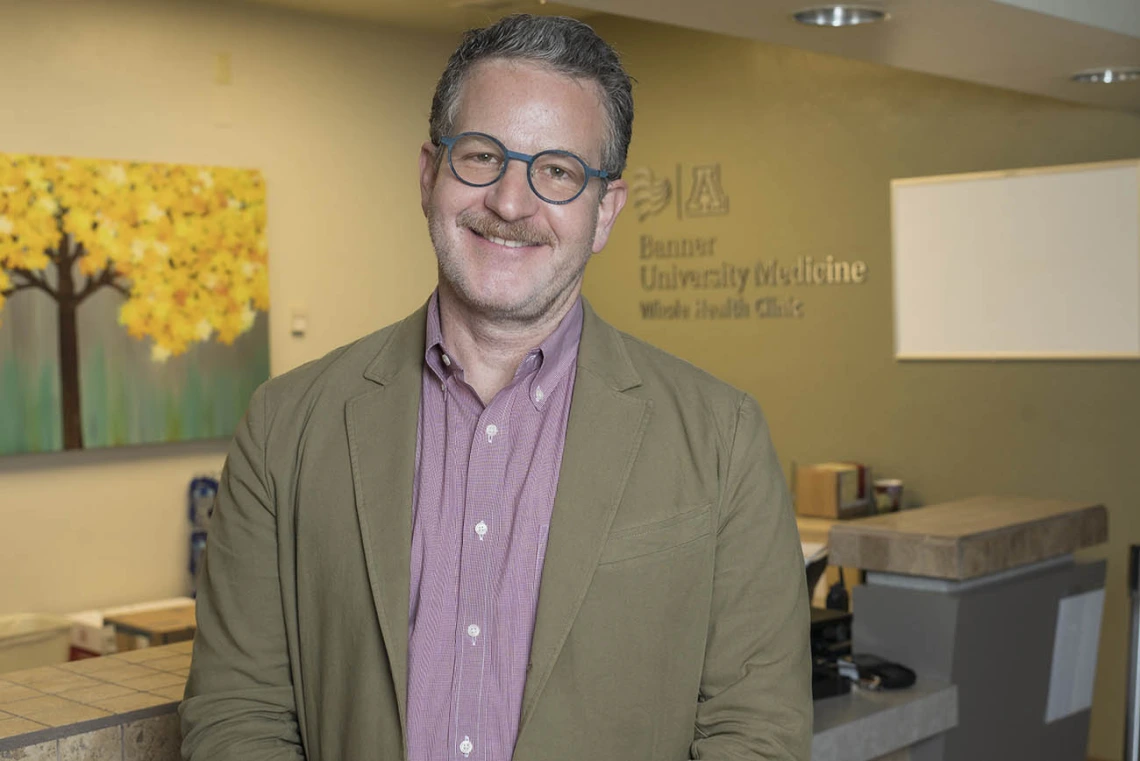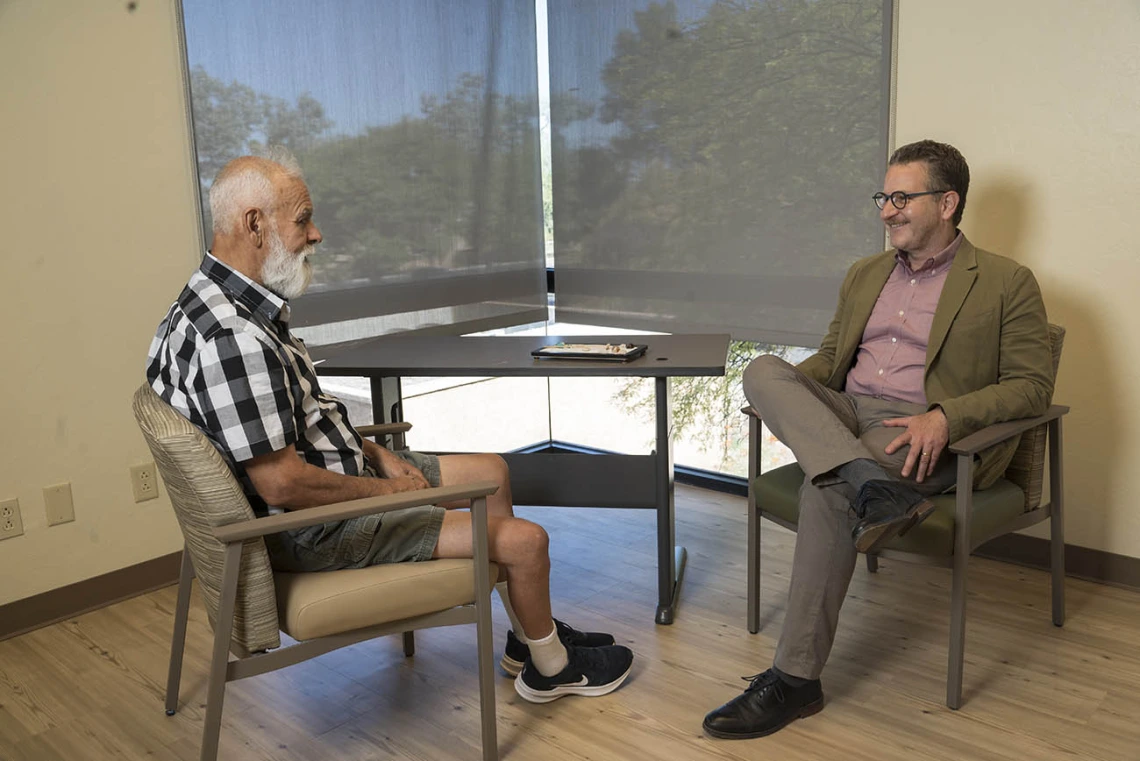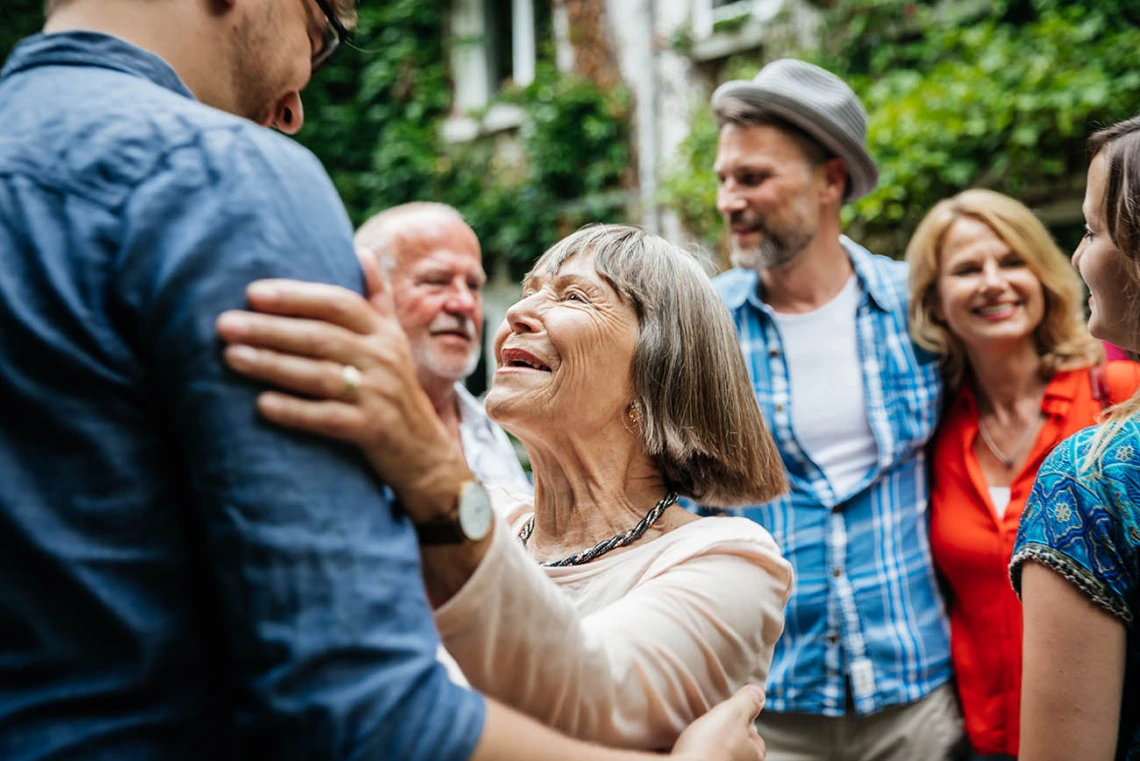Loneliness: 6 Things to Know that Might Save a Life
Everyone is alone sometimes. But social isolation and feelings of loneliness can lead to serious health issues and even death.

Jordan Karp, MD, specializes in treating depression and preventing suicide. He offers insights to better understand isolation and loneliness, plus tips on how to get help for yourself or someone you love.
1. "Lonely" and "alone" aren't the same
Health professionals use the term "social isolation" for people who are alone much of the time, and measure it with questions like, "How often do you have contact with friends?"
On the other hand, "loneliness" is subjective. Even people with lots of social contact can experience loneliness. There's no formula for defining it, and only you know when you're feeling it.
2. Loneliness and isolation are serious issues
"In North America, we have this spirit of rugged individualism, that we have to make it on our own," says Dr. Karp, chair of the Department of Psychiatry at the UArizona College of Medicine – Tucson.
We tend to hide loneliness and isolation or dismiss them as not a big deal, even as the U.K. and Japan have created top-level government posts to deal with loneliness as a public health crisis.
Overreaction? Consider this: Some research suggests isolation and loneliness are more dangerous to our health than smoking.
In fact, a scientific review of 148 studies including more than 300,000 people showed that those with weaker social ties were 50% more likely to die in the 7.5 years the research focused on.

Jordan F. Karp, MD, is a professor and chair of the Department of Psychiatry at the University of Arizona College of Medicine – Tucson and clinical service chief for behavioral medicine at Banner University Medical Center and Group.
3. Some risk factors might surprise you
You probably know some things that put people at greater risk for loneliness and isolation: being older (especially 85+), being unmarried, living alone or in a rural area.
Depression and anxiety can lead to loneliness and isolation, but would you guess that lower education and income are also risk factors?
Men, people with disabilities, caregivers, people who identify as LGBTQ+ and people in other marginalized groups all face higher risks for loneliness and isolation, too.
4. One grim connection probably not on your radar
Around the world, 55 million people have dementia, which can make loneliness and isolation worse. But evidence suggests the relationship works in the other direction, too. That is, loneliness and isolation seem to increase the risk of developing dementia by about 50%!
"If you think about getting together with others to see a movie, to share a meal or talk about a book, that's engaging social cognition," Dr. Karp explains. "The very act of getting together requires planning. All of this is keeping brain networks active."

Around the world, 55 million people have dementia, which can make loneliness and isolation worse. Loneliness and isolation seem to increase the risk of developing dementia by about 50%.
5. There are many ways to help
The good news: There are many angles for addressing loneliness and social isolation, including these eight.
- First and most direct: Increasing social visits, joining a group or, for people who qualify, taking advantage of home services like meal deliveries can help.
- Disabilities and lack of transportation are isolating, so fixing assistive devices such as hearing aids or arranging rides can make a big difference.
- Face-to-face interactions are important to health, but connections by phone, text, online chat and social media help, too.
- Unhelpful social thoughts (such as tending to see things in extremes or blowing things out of proportion, e.g. thinking a new colleague will dislike you because you forgot their name) are a big risk factor, and cognitive behavioral therapy is one of the most scientifically proven ways to reshape the way we think.
- For people who feel socially awkward, it's never too late to get coaching or online help for interpersonal skills. "People can benefit from training across all phases of life," Dr. Karp says.
- Seek out local resources. For example, older adults in Tucson might connect with the UArizona Osher Lifelong Learning Institute or activities through Innovations in Healthy Aging.
- A sense of purpose – even something as simple as caring for a pet or plant – can reduce feelings of isolation and loneliness.
- Bonus: "Higher levels of empathy and compassion seem to be linked with more social connection and lower levels of loneliness," Dr. Karp says. And you don't have to come by them naturally: research shows these are qualities we can learn.

Face-to-face interactions are important to health, but connections by phone, text, online chat and social media help, too.
6. An ounce of prevention…
"Loneliness kills, and interventions work. If you or people you care about are experiencing social isolation or loneliness, get help," Dr. Karp says.
For everyone else, plan ahead!
"I'm always thinking about prevention," Dr. Karp says. "Older adults are most at risk for loneliness and isolation, and I believe we need to be thinking much earlier in adulthood about how to promote wellness and prevent these bad outcomes later on in life."
About the Author
Jordan F. Karp, MD, is a professor and chair of the Department of Psychiatry at the University of Arizona College of Medicine – Tucson and clinical service chief for behavioral medicine at Banner University Medical Center and Group. With expertise in geriatric psychiatry, treatment of depression and suicide prevention, he has authored more than 140 peer-reviewed publications. His work has been continuously funded by the National Institutes of Health, Patient Centered Outcomes Research Institute, American Foundation for Suicide Prevention and Brain and Behavior Research Foundation since 2006.

